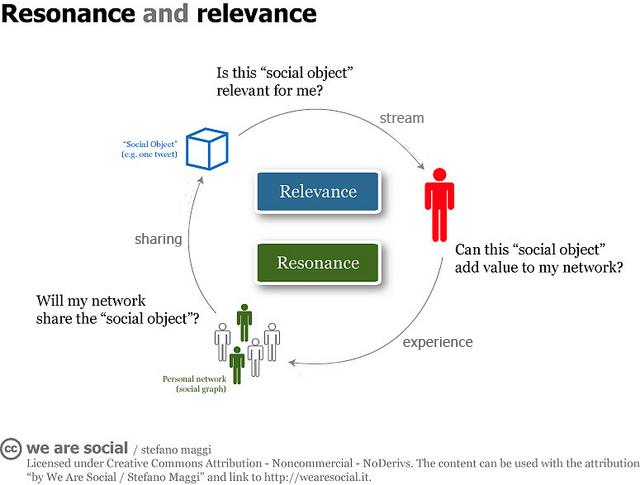When a loved one passes away, managing the legal processes involved in settling their estate can be daunting. A frequent question that arises is whether a letter of testamentary is necessary if the deceased had a will. This article delves into the significance of a letter of testamentary and its necessity when dealing with a will. Understanding these legal requirements can alleviate some of the burdens during this challenging time.
The Role of a Letter of Testamentary
Having a will is a fundamental step in ensuring your assets are distributed according to your wishes after your death. However, a will alone may not suffice to legally authorize the distribution of your assets. This is where a Letter of Testamentary becomes essential.
So, what exactly is a Letter of Testamentary, and why might you need one even if you have a will? A Letter of Testamentary is a court-issued document that appoints an executor to manage the estate of a deceased person. This document grants the executor the legal authority to execute the provisions outlined in the will.
Even if you have a will that clearly specifies how you want your assets distributed, without a Letter of Testamentary, the executor may lack the legal authority to act on behalf of the estate. This could result in delays in asset distribution or even disputes among family members.
Distinguishing Between a Will and a Letter of Testamentary
Understanding the differences between a will and a Letter of Testamentary is crucial in estate planning. While both documents pertain to asset distribution after death, they serve distinct purposes.
A will is essential for outlining your final wishes and ensuring your assets are distributed according to your desires. It provides instructions on who will inherit your property, who will be appointed as the executor of your estate, and who will be named as guardians for any minor children.
Conversely, a Letter of Testamentary is a legal document issued by the probate court that authorizes the executor of an estate to act on behalf of the deceased. This document is necessary for executing the will’s provisions, such as distributing assets and resolving any outstanding debts.
Situations Requiring a Letter of Testamentary
It is important to know when a Letter of Testamentary is required for estate administration, especially if you are wondering if you need one even if you have a will. A Letter of Testamentary, also known as a Grant of Probate, is typically needed in the following scenarios:
- Real Estate Transactions: If the deceased owned property, a Letter of Testamentary may be required to transfer or sell the property.
- Financial Assets: If the deceased had financial accounts or assets in their name, a Letter of Testamentary may be necessary to access or distribute these assets.
- Creditor Claims: In some cases, a Letter of Testamentary may be required to handle any outstanding debts or creditor claims against the estate.
While having a will can help streamline the probate process, a Letter of Testamentary may still be necessary to provide legal authority to the executor or personal representative to carry out their duties. It is important to consult with a legal professional to determine whether a Letter of Testamentary is required in your specific situation.
Obtaining a Letter of Testamentary
When the time comes to settle the estate of a loved one, you may find yourself in need of a letter of testamentary. This legal document authorizes the executor of the will to act on behalf of the deceased individual’s estate. If you are unsure whether you need a letter of testamentary, here are some steps to take:
- 1. Check the requirements in your state: Each state has its own laws regarding the probate process and the need for a letter of testamentary. Make sure to familiarize yourself with the specific requirements in your state.
- 2. Obtain a copy of the will: The will is a crucial document that outlines the deceased individual’s wishes for the distribution of their assets. If you have a copy of the will, review it to determine if you are named as the executor.
- 3. Contact the probate court: If you believe you need a letter of testamentary, contact the probate court in the county where the deceased individual resided. The court clerk can provide you with information on how to obtain the necessary documents.
Conclusion
While having a will is a crucial step in ensuring your final wishes are carried out, obtaining a letter of testamentary may still be necessary in certain situations. It is always best to consult with a legal professional to fully understand the requirements and implications of your specific circumstances. Proper planning now can help streamline the probate process and provide peace of mind for your loved ones in the future.

Do You Really Need a Letter of Testamentary if You Already Have a Will?
Understanding the Letter of Testamentary
A Letter of Testamentary is a crucial legal document that gives an executor the authority to manage and distribute the assets of a deceased individual’s estate as outlined in their will. While having a will is essential, it’s not always sufficient on its own for several reasons. Let’s dive into why you may still need a Letter of Testamentary.
What is a Will?
A will is a legal document that specifies how an individual wants their assets distributed after death. It names an executor responsible for executing the will’s terms. However, the presence of a will alone does not automatically grant the executor the legal authority to act on behalf of the estate. This is where the Letter of Testamentary comes into play.
The Role of the Executor
The executor, as named in the will, has the responsibility to manage the estate, pay any debts, and distribute assets as per the will’s instructions. However, without obtaining a Letter of Testamentary, their hands may be tied when dealing with banks, government agencies, and third parties.
Why You Might Need a Letter of Testamentary
- Legal Authority: It provides legal validation for the executor to act on behalf of the estate.
- Smooth Asset Transfer: Many financial institutions and entities require this document before releasing funds or assets.
- Debt Settlement: The executor can use it to settle debts and outstanding obligations of the estate.
Case Studies
Case Study 1: A Smooth Transition
Jane Doe’s will clearly outlined her asset distribution, naming her sister Mary as the executor. Despite this, Mary found herself unable to access bank accounts and sell property to execute the will’s terms. With a Letter of Testamentary, she was able to facilitate the asset transfer smoothly.
Case Study 2: Delayed Resolution
John Smith did not anticipate the need for a Letter of Testamentary. His executor, David, faced significant delays and legal challenges in fulfilling his duties. Once David obtained the Letter, he could efficiently manage the estate.
How to Obtain a Letter of Testamentary
Step-by-Step Guide
- File a Petition: Submit a petition to the probate court in the county where the deceased lived.
- Present the Will: Provide the original will to the probate court.
- Notices: Give appropriate notice to heirs and creditors as required by law.
- Attend a Hearing: Attend a probate court hearing where the judge will review the petition and, if everything is in order, issue the Letter of Testamentary.
Useful Tips for Executors
- Stay Organized: Keep all documents, including the will and financial records, well-organized.
- Consult an Attorney: Seek legal advice to navigate complex probate laws effectively.
- Communicate: Maintain clear communication with the beneficiaries to avoid misunderstandings.
Common Myths and Misconceptions
Myth: A Will is Enough
Many people believe that having a will is sufficient to manage an estate seamlessly. However, without a Letter of Testamentary, the executor lacks the legal power to perform essential tasks like accessing bank accounts or selling property.
Myth: Only Large Estates Need It
Even smaller estates often require the formal recognition provided by a Letter of Testamentary to ensure all assets are handled correctly and according to the deceased’s wishes.
Benefits of Having a Letter of Testamentary
- Legal Clarity: Provides clear legal authority for the executor, reducing potential disputes.
- Access to Assets: Streamlines the process of accessing and managing the deceased’s assets.
- Peace of Mind: Offers peace of mind to the executor and beneficiaries, knowing that legal requirements are met.
FAQs
| Question | Answer |
|---|---|
| Is a Letter of Testamentary necessary for all wills? | Not necessarily, but it often simplifies the process and provides legal authority to the executor. |
| How long does it take to get a Letter of Testamentary? | The time frame can vary, but it generally takes a few weeks to a few months, depending on the court’s schedule. |
| Can I avoid probate altogether? | Some estates can avoid probate through trusts, joint ownership, or other measures, but this requires proper planning. |


